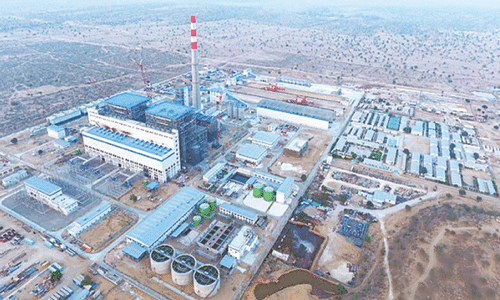ISLAMABAD, Dec 19: Pakistan’s oil import bill edged up to highest level by 45.36 per cent during the first five months of the current fiscal year over last year despite the fact that the oil prices plunged at international level.
The oil bill is still on the higher side despite the fact that the past two months recorded slight slowdown in imports value may be due to the more than 30 per cent deprecation of rupees, which has increased the cost of imports.
In absolute term, the import value of oil increased to $5.482 billion in July-Nov from $3.771 billion over the same months last year, showing an increase of 45.36 per cent, suggested data issued by federal bureau of statistics on Friday.
Though the oil bill was on the rise but a drop of 31.76 per cent has been witnessed in oil import bill in the month of Nov, which is the second straight highest decrease in the month under review as against October this year.
The statistics showed that the decline in oil import bill in November occurred on the back of steep cuts in the quantity of both crude oil and petroleum products imports may be due to a dip in demand as the over all economy is slowing down.
Oil has lost more than 70 per cent of its value in international market since hitting an all-time-high above $147 per barrel in July as fears escalate that a deepening global economic crisis will further depress demand. The depreciation of rupee and imposition of additional customs duty have resulted into lowering imports of transport group by more than 48 per cent during the first five months of the current fiscal year. This decline in import has been recorded across the board in both complete built units (CBU) and CKD/SKD vehicles.
The consumers demand for the vehicles has also witnessed decline may be due to the highest-ever inflation and also because of higher cost of consumer car financing through banks.
Analysts said Pakistan may not accrue that much benefits from the steep fall in the price of edible oil, raw materials, and food items in international market during the current fiscal year ending June 30 2009, if the rupee had not shed its value to such great extent.
The benefit could be much more if the health of rupee this year would have remained around the last year’s level. It was expected that the net cost of Pakistan’s petroleum products could escalate in the current fiscal year. The full year oil import bill crossed the $11 billion mark last year causing huge dent in the country’s forex reserves.
A rising trend in import bill has also been witnessed in food items and agricultural products during the months under review. The food import bill was up by 46.49 per cent to $1.982 billion in July-Nov period this year against $1.353 billion last year. Of these, import of wheat increased by 1,584.05 per cent, tea 36.25 per cent and palm oil 11.95 per cent during the period.
Similarly, the import bill of agriculture sector was up by 8.33 per cent to $2.521 billion in the current five months against $2.327 billion last year.
The machinery import rose to $2.964 billion during the period under review as against $2.786 billion over last year.















































Dear visitor, the comments section is undergoing an overhaul and will return soon.